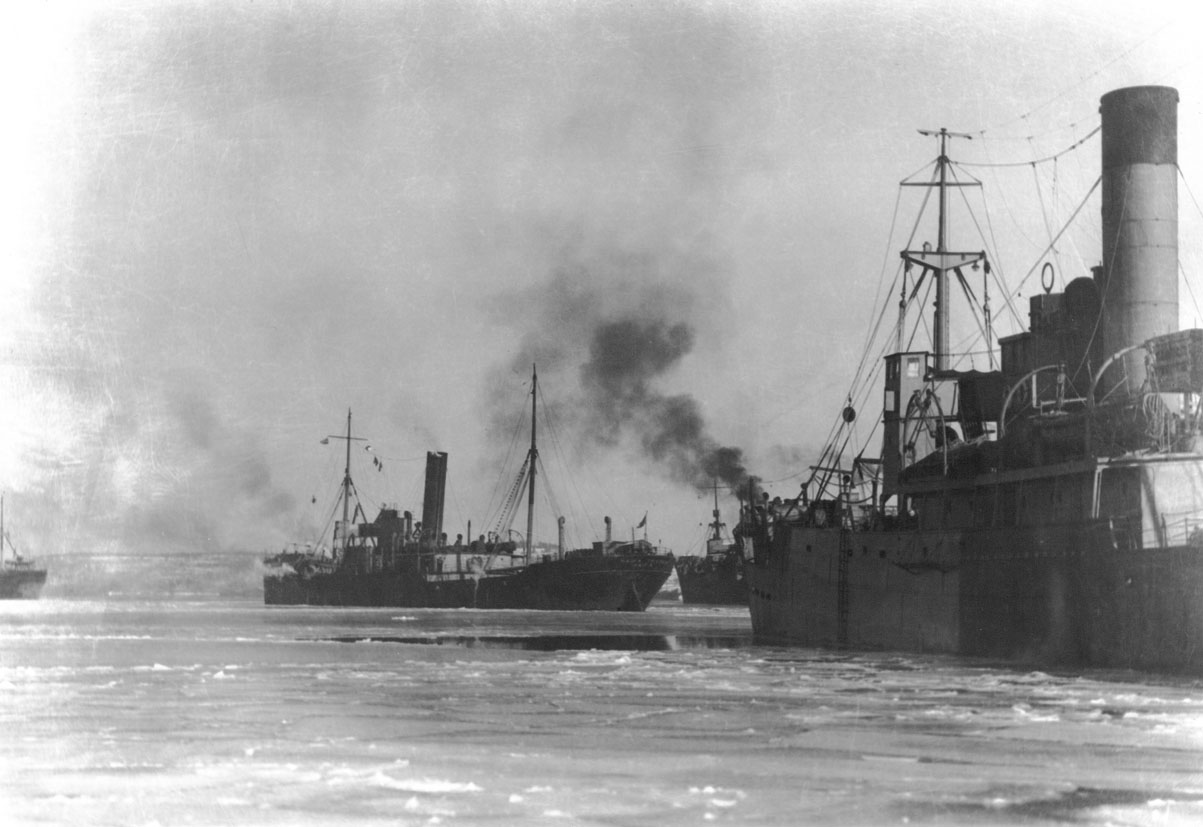IMHO, this lends credence to the information I've read regarding Halifax being somewhat worn out at the end of the Second World War, and the economy pretty much following the ups and downs of military activity at those times.
The city being used and abused during wartime combined with the drop in the economy as military activity dropped off led to a lot of the city being left in its run-down state and not 'fixed up' until the urban renewal drive of the 1950s and 1960s, which unfortunately took some more significant salvageable heritage buildings along with those run-down buildings.
Posters who are more well-versed in economics and history than I can probably tell it more succinctly, though.
One anecdote that sticks in mind is that the street car system was so worn out after the war that it all needed pretty much complete replacement or refurbishment. This is what led to the electric bus system that started in 1949.
Additionally, one must remember that the air contained more pollutants back then, as many people burned coal or wood to heat their homes. Also, the downtown area was home to a lot more industrial sites and stack emissions were much dirtier as well. There were other sources such as the power station, steam locomotives (until about 1960), ships, etc.
So, the dirty, grimy look that is being noted in the photos would be a cumulative effect of wear, neglect, fallout from pollution, etc.
Photos from the era help illustrate the difference in air quality of the times vs today:
 https://novascotia.ca/archives/Denni...es.asp?ID=2383
https://novascotia.ca/archives/Denni...es.asp?ID=2383
 https://novascotia.ca/archives/MacAs...ves.asp?ID=860
https://novascotia.ca/archives/MacAs...ves.asp?ID=860



